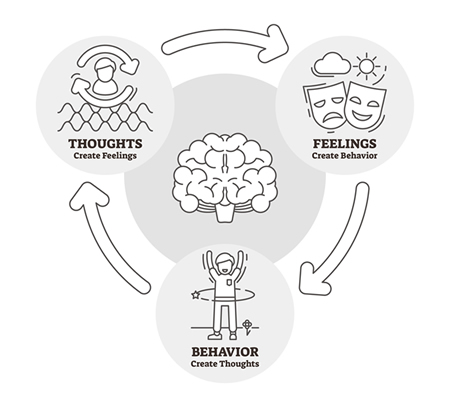Individual Therapy
Serving Clients from the Maryland, Washington, D.C. and Virginia metropolitan areas.
I offer tele-counseling as well as in-person counseling.

Emotional pain hurts. Would you like to feel better? I provide individual short term counseling or long term therapy to help clients gain relief from existing symptoms, and to assist clients develop healthy coping strategies for a more meaningful life. I help you find solutions to the missing pieces in your world. You may wonder how this is accomplished:
Benefits of Individual Therapy
- I provide you with an honest, empathic, encouraging, non judgmental and caring relationship in a safe, private and confidential office setting.
- We collaborate to devise a personal plan that lists and prioritizes your concerns.
- Together we set goals that are specific, manageable, attainable, realistic and timely.
- We focus on your existing strengths and present needs.
- Strategies and resources will be identified to help you meet your goals and achieve a positive outcome from your counseling.
- I can administer instruments such as The Myers Briggs Personality Inventory and the Personal Values assessment which add additional objectivity to problem solving.
- Theoretical orientations that work best for you are selected. These may include: Cognitive Behavioral Therapy, Reality Therapy, Solution Oriented Therapy, Client Centered Therapy, and or an eclectic combination of the above and others.
Common Concerns
Clients typically seek relief from symptoms such as:
- Depression – Persistent feelings of sadness, hopelessness, and low energy that impact daily functioning.
- Anxiety – Excessive worry or fear that can lead to restlessness, irritability, and physical tension.
- Loss – The emotional impact of losing someone or something significant, often linked to longing or regret.

- Grief – A deeply personal process of mourning and adjusting to life after a significant loss.
- Anger – Intense frustration or resentment that can strain relationships and overall well-being.
- Fear – Worry about potential danger or uncertainty that can limit personal and professional growth.
- Low Self-Esteem – Negative self-perception that hinders confidence and a sense of self-worth.
- Lack of Trust – Difficulty relying on others or believing in oneself, often stemming from past disappointments.
- Stress – Feeling overwhelmed by life’s demands or daily pressures, affecting both mind and body.
- Isolation – Withdrawing from social situations or feeling disconnected from friends, family, or community.
- Loneliness – A state of feeling unheard or unsupported, even when surrounded by people.Cycle of Thoughts and Behaviors – Recognizing how negative thoughts trigger difficult emotions that drive unhelpful behaviors, ultimately feeding back into more negative thoughts.
These symptoms often surface when a client is going through a major transition and change such as:
- Beginning a New Relationship – Adjusting to new emotional dynamics and forging deeper connections.
- Marriage – Balancing individual needs with the demands and rewards of partnership.
- Becoming a Parent – Embracing new responsibilities, shifting priorities, and navigating identity changes.
- Infertility – Dealing with uncertainty, potential treatments, and the emotional toll of family planning.
- Adoption – Preparing for legal processes, emotional transitions, and family dynamics.
- Separation – Handling the emotional and logistical complexities of living apart.
- Divorce – Moving through significant legal, financial, and emotional challenges.
- Parenting Adult Children – Adjusting to a changing parent-child dynamic and fostering healthy independence.
- Caring for Elderly Parents – Balancing compassion, time, and resources while maintaining self-care.
- Starting a New Job – Facing the stress of new responsibilities, workplace cultures, and expectations.
- Losing a Job – Coping with financial insecurity and the emotional impact of unemployment.
- Relocating – Managing the upheaval of moving to a new city, state, or country, including culture shock and loneliness.
Common Feelings
Clients going through these transitions sometimes describe themselves as feeling:
- Numb – Emotionally shut down or detached.
- Stuck – Unable to move forward or make necessary life changes.
- Defeated – Lacking hope or belief in personal capabilities.
- Lost – Unsure of identity, purpose, or direction in life.
- Alone – Feeling isolated, even if surrounded by others.
- Without Direction – Unable to see a clear path or set achievable goals.
- Misunderstood – Believing others cannot grasp or relate to personal struggles.
- Ashamed – Feeling guilt or embarrassment over circumstances or perceived failures.
- Overwhelmed – Struggling to cope with the intensity of life changes.
- Afraid – Experiencing anxiety or fear about the unknown future.
